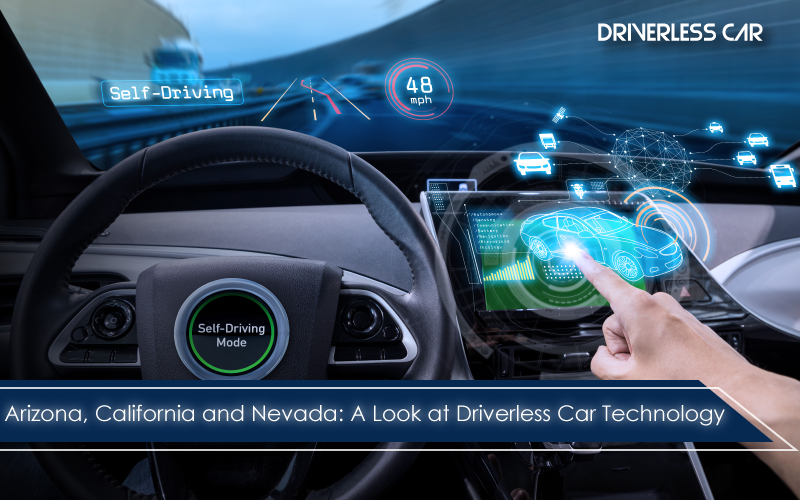Driverless car technology is for now and later. Industry experts estimate that there will be more than 10 million self-driven cars on the road by 2020.
As the debate on whether self-driven vehicles are safe and reliable rages on, some states have moved forward and set up laws allowing autonomous vehicles on their roads in a testing environment. This includes Arizona, California, and Nevada – three states that have been the clear front-runner at welcoming driverless cars or autonomous vehicles. We compare the policies of the three states and tell you where they stand right now on self-driven cars.
California approved new laws that allow driverless cars to run on the roads without requiring a human operator to sit behind the wheels. The Department of Motor Vehicles has permitted tech companies and car manufacturers to test and deploy self-driven cars without having a human presence in the car to take over the steering wheel in case of an emergency. This is certainly a big decision as it allows car manufacturers to deploy driverless cars without a steering wheel, accelerator or brake pedal. Tech companies have wanted this concession for a long time.
A spokesperson for the Alphabet-owned Waymo said, “Waymo has been testing its self-driving technology in California since 2009 and we welcome the release of the final California DMV regulations for driverless testing and deployment.”
Arizona Gov. Doug Ducey has actively encouraged the development of autonomous vehicles in his state. He signed an executive order in 2015 that supports the testing an operation of driverless cars in his state.
Arizona directly competes with California for the leadership position in the development of autonomous vehicles and has been successful at this. Uber is one of the major tech companies that left California for Arizona for testing and developing driverless cars.
Gov. Ducey said in a statement in 2016, “Arizona welcomes Uber self-driving cars with open arms and wide open roads. While California puts the brakes on innovation and changes with more bureaucracy and more regulation, Arizona is paving the way for new technology and new businesses.”
But things took a turn for the worse this year, following a fatal accident involving a self-driven Uber car in which a pedestrian was killed. Arizona has since suspended Uber’s testing of driverless vehicles in the state.
Nevada has encouraged innovation in driverless cars through policy changes and by enacting regulations to allow testing of autonomous cars in the state. Any company that wants to develop such cars in Nevada has to apply for an “Autonomous Vehicle Business License.”
Nevada Gov. Brian Sandoval was particularly encouraging of driverless vehicles. He tested an autonomous Google car in 2012, becoming the first governor to do so. He was determined to make Nevada a leader in this futuristic technology and wanted to attract all major tech companies and auto majors to his state. However, as of today, Nevada has lagged behind as other states such as Florida, Michigan and Texas have moved ahead of the pack. The main issue is that Nevada is yet to upgrade its laws on autonomous vehicles.
Bruce Breslow, director of the Nevada Department of Business & Industry, explains, “Six years ago, we envisioned people buying self-driving cars. Now it looks like the first major push is going to be in fleets of self-driving cars, whether it be a taxicab fleet, a transportation network company like Uber or Lyft, or even self-driving trucks.”
State legislators have also expressed concern over the safety of these vehicles. Assemblywoman Ellen Spiegel said, “I really do encourage our state to take leadership positions in areas related to technology. But I want to hear more about the safety issues.”
Lawmakers in Nevada are like lawmakers across the country. Safety is a priority. Driverless technology is the future. This is why states across the nation must begin discussions about where they stand on autonomous vehicle technology. California, Arizona and Nevada should be commended for engaging.

